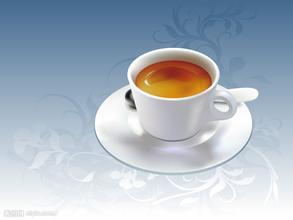Introduction to the characteristics of Indonesian Java Coffee Flavor Manor
Java coffee is famous in the early years, which refers to Arabica coffee formerly grown on the island of Java. It has a strong aroma, low acidity, taste lubrication, mixed with mocha coffee, the resulting "Java mocha mixed coffee" was once popular and became synonymous with top coffee.
At that time, Java coffee sold to Europe was a very special kind of coffee. At that time, it was shipped to Europe and the United States by sailboat, and the distance was long and the speed was slow, so it took a lot of time to transport. In this case, the coffee seems to have undergone a special fermentation and has a very unique taste.
Later, when the ship replaced the sailboat, due to the shortened delivery time, people drank relatively fresh coffee beans. But people who are used to drinking Chen beans are not used to the fresh taste, so they desperately pursue old Java coffee, so that the Indonesian government and some businessmen deliberately store fresh beans in warehouses for one or two years and then sell them to consumers. In fact, compared with fresh beans, the acidity of aged Java beans is close to zero, but the flavor is more intense. Because of the long storage time, the increase in cost and the limited quantity, Java has always been a hot item in the coffee market. In the 1880s, some profiteers deliberately tampered with some fresh Guatemalan or Venezuelan beans to mimic the high prices of old Java. It is intolerable that profiteers dye coffee beans to make them look more like old Java, but there is no doubt that the chemicals dyed are poisonous Java coffee with rich and thick aromas, clear acidity, high balance, and sometimes nutty flavors. In terms of appearance and quality, Java coffee is excellent, just like a woman's vaguely charming, charming and just right, memorable.
Java coffee
Java Coffee Atlas
Each caffeine variety has a different origin and has its own strong character, such as the masculine Mantenin, which resembles the character of an iron and steel man; mellow, fragrant blue mountain coffee, and gentle women are addicted to missing. Java Coffee, which has always been light and fragrant, is suitable for those who like light sex. Such people do not want to drink coffee as a sitting thing, from sour, sweet, bitter, astringent experience what profound philosophy of life, just want to simply drink a cup of delicious coffee, a cup of hot Java coffee, let these people realize that "the realm of life is rich and quiet." Quiet, because of getting rid of the temptation of external fame and gain; rich, because of having the treasure of the inner spiritual world. The happiness of life is to reap such an incisive interpretation of the realm. Java, located in northwestern South America, is a beautiful country with a long history. Indians have lived on this land since ancient times. It was colonized by Spain in 1531 and gained independence in 1819. It was renamed Java Coffee in 1886 in memory of Columbus, the discoverer of the American continent. Java, beautiful mountains and rivers, beautiful scenery, pleasant climate, spring all year round, fresh air, refreshing. Walking in the streets of Bogota, the capital, I feel relaxed and happy. The weeping willow with green branches and green leaves swayed in the air with the breeze; the tall and straight palm trees, like ancient copper-skinned giants, lined up with large umbrellas to greet visitors from afar; the blooming kapok tree opened its bright red leaves, as if holding a fiery heart to greet friends.
Java is rich in products, especially coffee, flowers, gold and emeralds known as the "four treasures". In 1808, a priest introduced coffee to Java for the first time from French Antilles via Venezuela. Today, the country is the second largest coffee producer after Brazil, an exporter of Arabica coffee beans and an exporter of washed coffee beans. Java coffee is often described as having a silky taste. Among all the coffees, it is well balanced, soft and smooth, and can be drunk at any time. It has won more praise than any other coffee: known as "green gold".

Important Notice :
前街咖啡 FrontStreet Coffee has moved to new addredd:
FrontStreet Coffee Address: 315,Donghua East Road,GuangZhou
Tel:020 38364473
- Prev

Introduction to the characteristics of flavor and taste of Costa Rican coffee manor
Coffee was introduced into Costa Rica from Cuba in 1729. Today, its coffee industry is one of the well-organized industries in the world, with a yield of 1700 kg per hectare. Costa Rica has only 3.5 million people but 400m coffee trees, and coffee exports account for 25 per cent of the country's total exports. The volcanic soil of Costa Rica is very fertile and well drained, especially in the central part.
- Next

Guatemala Coffee Estate Flavor Taste Characteristics of Orange Peel and Green Pepper
Between 1950 and 1954, when President Jacobo Árbenz was in power, land reform was implemented, and large landowners, who accounted for 2% of the country's population, occupied about 70% of the country's arable land.Árbenz wrote a check for agrarian reform, promising to buy up land held by large landowners and redistribute it to small farmers.Árbenz won the election, and the land reform program was immediately implemented. For land ownership greater than 223
Related
- Detailed explanation of Jadeite planting Land in Panamanian Jadeite Manor introduction to the grading system of Jadeite competitive bidding, Red bid, Green bid and Rose Summer
- Story of Coffee planting in Brenka region of Costa Rica Stonehenge Manor anaerobic heavy honey treatment of flavor mouth
- What's on the barrel of Blue Mountain Coffee beans?
- Can American coffee also pull flowers? How to use hot American style to pull out a good-looking pattern?
- Can you make a cold extract with coffee beans? What is the right proportion for cold-extracted coffee formula?
- Indonesian PWN Gold Mandrine Coffee Origin Features Flavor How to Chong? Mandolin coffee is American.
- A brief introduction to the flavor characteristics of Brazilian yellow bourbon coffee beans
- What is the effect of different water quality on the flavor of cold-extracted coffee? What kind of water is best for brewing coffee?
- Why do you think of Rose Summer whenever you mention Panamanian coffee?
- Introduction to the characteristics of authentic blue mountain coffee bean producing areas? What is the CIB Coffee Authority in Jamaica?

